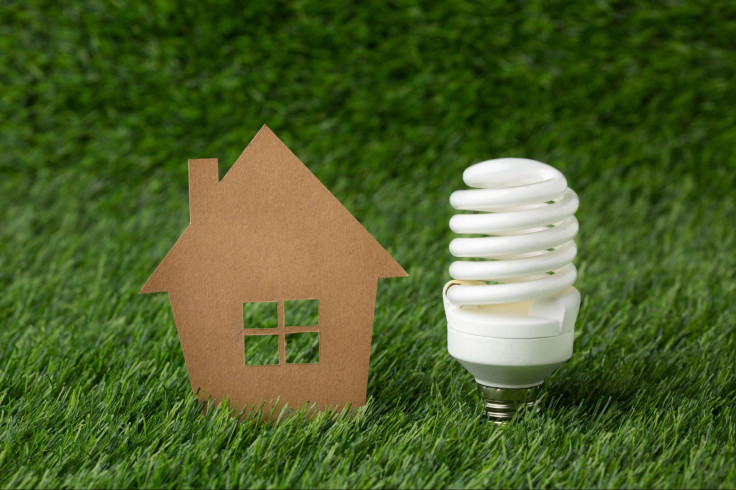How to Master the Art of Efficient Energy Use at Home: Tips and Tricks
Learn the essential tips and tricks to become a master of efficient energy use at home, reducing waste and saving money while promoting sustainable living.

Using energy wisely will keep your monthly utility costs down as the cost of living and energy increases. Although we may not realise it, it takes considerable energy to heat and cool our homes.
Reducing our energy consumption does not have to break the bank or completely overhaul the home. Simple changes and becoming consistent with habits are all it takes to start saving money.
Many people are unaware of the areas in their homes that consume the most energy – and that's where we come in. We've compiled a list of energy-saving tips for each room that is easy to implement and can be included in our daily lives.
The Kitchen
The kitchen is the heart of the home and the room where the most energy is used. Making a few changes can save a great deal of money and reduce your consumption.
- To improve energy efficiency in the kitchen, consider switching to energy-efficient kitchen appliances over older ones when replacing them to ensure energy efficiency. Look for labelled and certified appliances; these models are designed to use less energy.
- Do not pre-rinse your dishes before putting them in the dishwasher. Scrape the plates clean, and only use your dishwasher when you have a full load.
- While cooking, covering your pots and pans can help retain heat, requiring less energy to prepare your meals.
- Open the refrigerator and oven doors sparingly; doing so lets air out, which makes the appliances work harder to keep the temperature set.
- Unplug electronic devices and appliances at the wall socket. Unlike refrigerators and freezers, smaller appliances like a toaster, washing machines and microwaves should be unplugged when not in use since they drain energy regardless if not used.
Your Bathroom
Even though bathrooms are smaller than other rooms in your house, they consume a lot of energy.
- Install low-flow showerheads and faucets to reduce your water consumption. Heating up water uses energy. A low-flow showerhead prevents you from using too much water, which requires a lot more energy to heat up.
- Ensure that the light bulbs in your bathroom are energy-efficient. Consider switching to LED lightbulbs or motion sensor lighting to reduce electricity consumption.
- Don't run the shower for too long before entering. Switch to a water-efficient shower head, saving you at least £70 off your utility bill annually.
- Opt for a heated towel rack instead of heated flooring.
- After removing all the humidity in your bathroom, turn off the extractor fan.
- Allowing your hair to air dry during the summer will help conserve energy.
The Bedroom
Transform your bedroom into an eco-friendly sanctuary while you unwind and relax, and save money as you conserve energy.
- When not in use, unplug the chargers for your phone and computer. Like kitchen appliances, they can still consume vampire energy even when your devices are not charged.
- Select the appropriate bedding based on the season. Snuggle up under thicker blankets in the winter, but switch to linen sheets in the summer. This prevents you from relying on your heating and cooling system and leaving it on while you sleep.
- Set a timer so that it turns off the TV automatically after a predetermined period if you prefer to sleep with it on.
Laundry Rooms
Although not much time may be spent in the laundry room, using your washing machine and dryer can consume a ton of energy.
- Change the wash setting on your machine to a cold wash. Wash your clothes in hot water and use electricity to warm the water. Wash your clothing in cold water to avoid wasting energy on water heating.
- Try using your washing machine until you have a full load of laundry. Regardless of the load size, a washing machine will use the same amount of energy to run.
- Use your dryer's low-heat setting. This is because the lower the setting, the less energy it uses.
- Air dry your clothes instead of using a dryer as much as possible.
- To keep your dryer operating efficiently, clean the lint filter regularly. If the filter is dirty, your dryer will use more energy to dry your clothes.
The Pool
Swimming pools are a guilty pleasure, but it's also guilty of consuming large amounts of electricity.
- Maintain a comfortable pool water temperature of around 80 degrees. Overheating the water's not a good idea because it can waste energy.
- Consider buying a solar blanket to stop evaporation and keep the water warm.
- Modern solar heaters can also significantly lower pool heating costs by up to 50%.
- Keep the filters clean to increase the energy effectiveness of pool equipment.
- Consider installing a new energy-efficient pump if you want to reduce energy use and costs further.
Final Thoughts?
You can save money simply by making your home more energy efficient. Although individual appliances and lightbulbs might seem trivial, their combined effect can be considerable. You can help reduce the demand for harmful fossil fuels by conserving electricity at home, simply by lowering the energy your household uses.
© Copyright IBTimes 2025. All rights reserved.





















